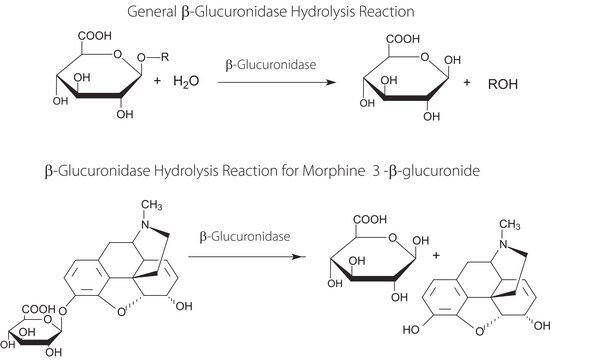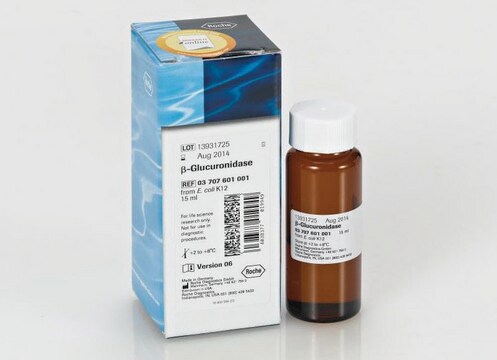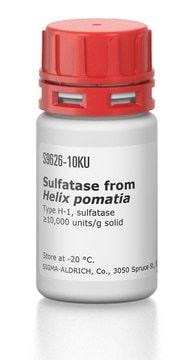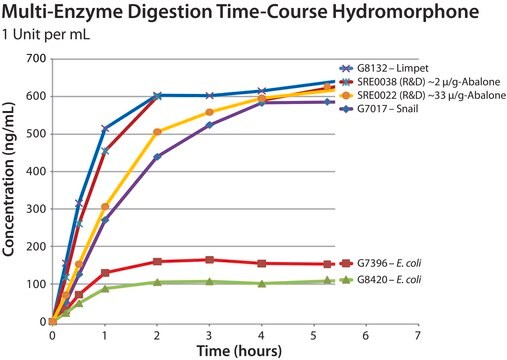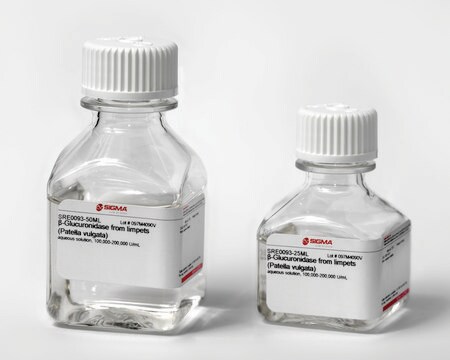G0876
β-Glucuronidase from Helix pomatia
Type H-2, aqueous solution, ≥85,000 units/mL
Synonym(s):
β-D-Glucuronide glucuronosohydrolase
About This Item
Recommended Products
type
Type H-2
Quality Level
form
aqueous solution
specific activity
≥85,000 units/mL
secondary activity
≤7,500 units/mL sulfatase
shipped in
wet ice
storage temp.
2-8°C
Looking for similar products? Visit Product Comparison Guide
Related Categories
Application
Learn more
about recent application data generated by Sigma R&D to optimize hydrolysis for different drug classes using enzymes from different sources and the use of a chromatographicaly purified enzyme to reduce the effect of esterase activity resulting in conversion of 6-MAM to Morphine
Biochem/physiol Actions
Quality
Unit Definition
Physical form
also commonly purchased with this product
Signal Word
Danger
Hazard Statements
Precautionary Statements
Hazard Classifications
Resp. Sens. 1
Storage Class Code
10 - Combustible liquids
WGK
WGK 1
Certificates of Analysis (COA)
Search for Certificates of Analysis (COA) by entering the products Lot/Batch Number. Lot and Batch Numbers can be found on a product’s label following the words ‘Lot’ or ‘Batch’.
Already Own This Product?
Find documentation for the products that you have recently purchased in the Document Library.
Customers Also Viewed
Articles
β-glucuronidase (GUS) enzymes are utilized to hydrolyze glucuronide (gluc) drug metabolites to the parent drug, facilitating analysis by LC-MS/MS.
Protocols
Enzymatic Assay of ß-Glucuronidase (EC 3.2.1.31) from Helix Pomatia and Bovine Liver
Our team of scientists has experience in all areas of research including Life Science, Material Science, Chemical Synthesis, Chromatography, Analytical and many others.
Contact Technical Service